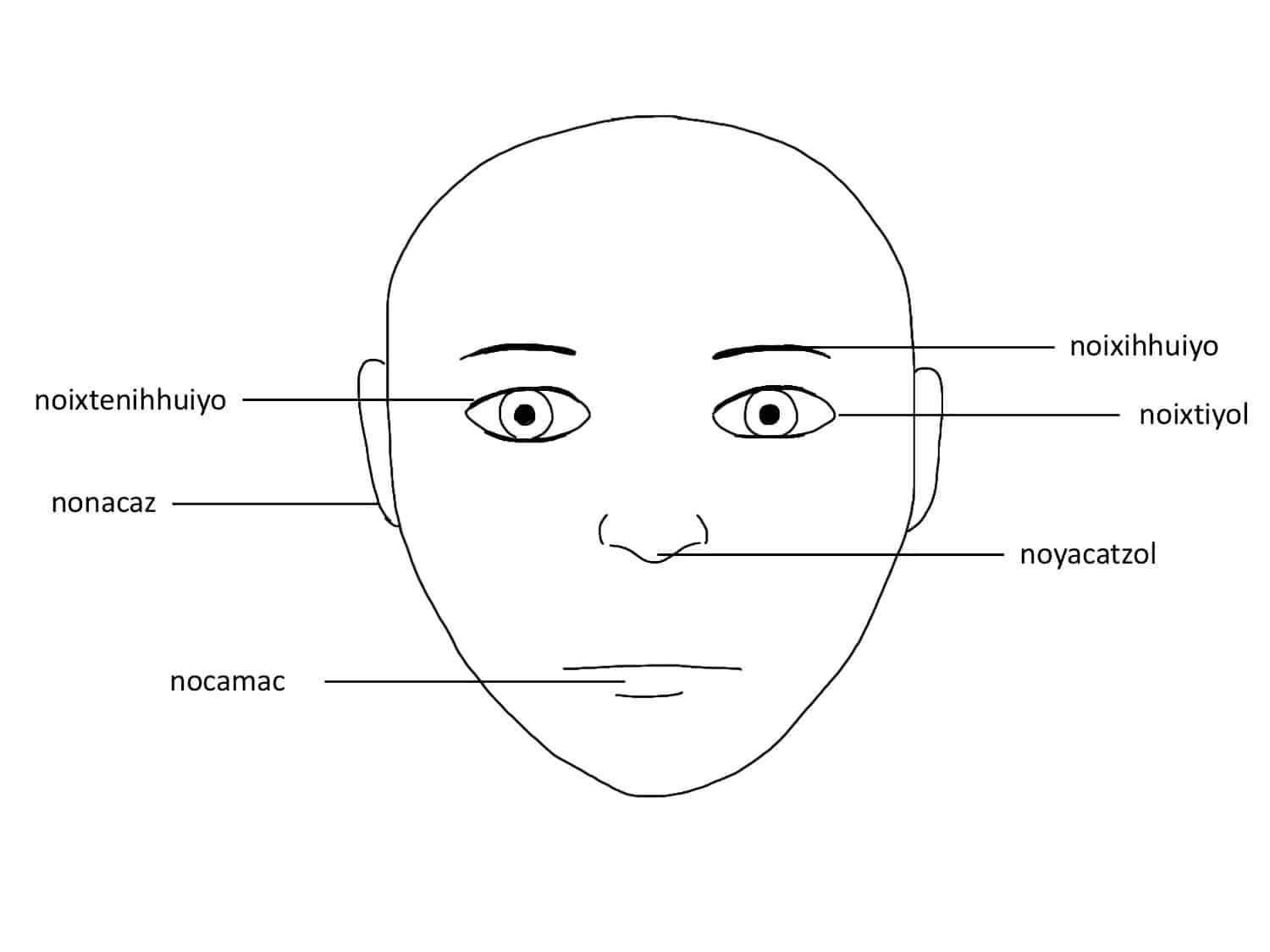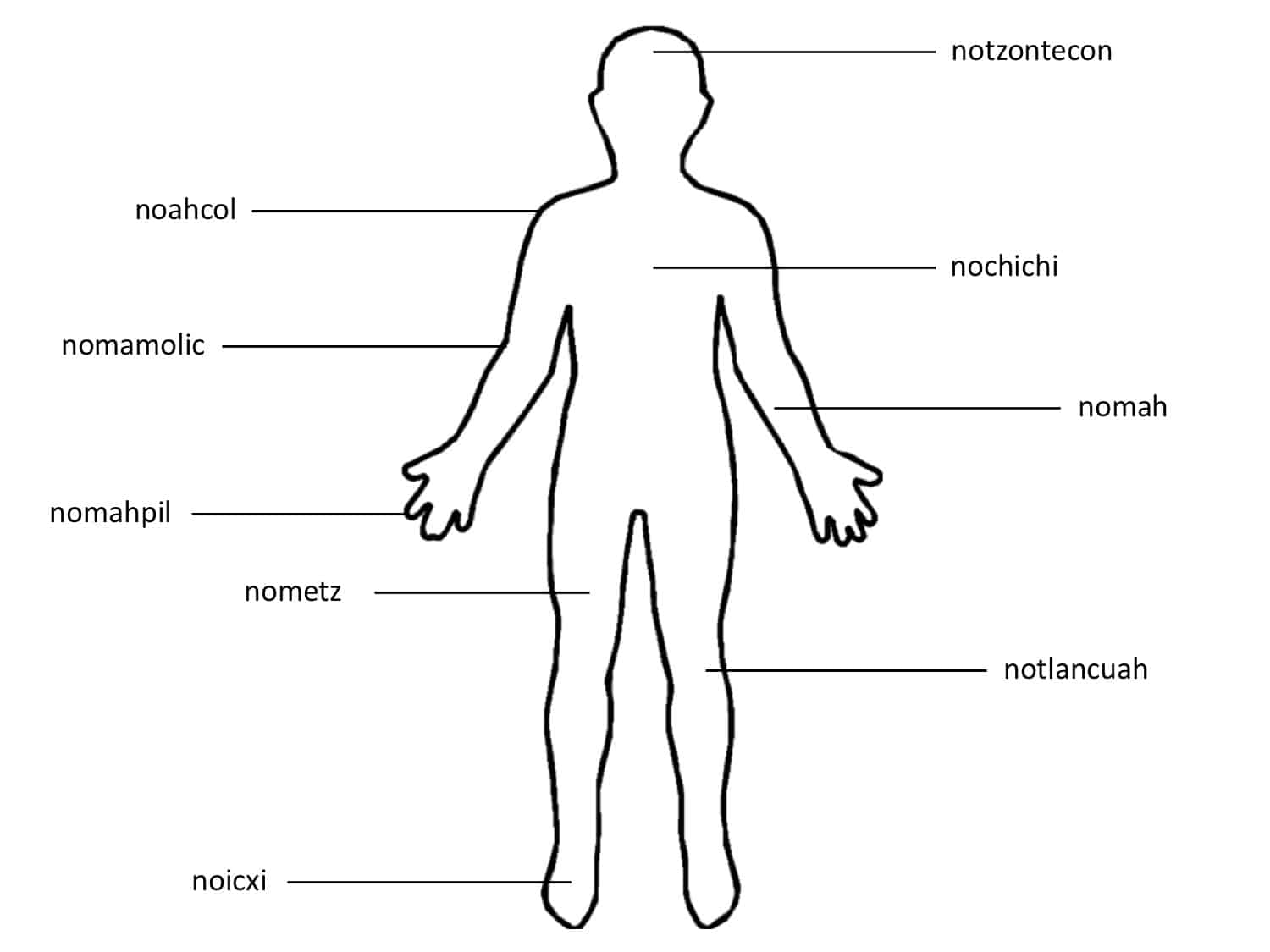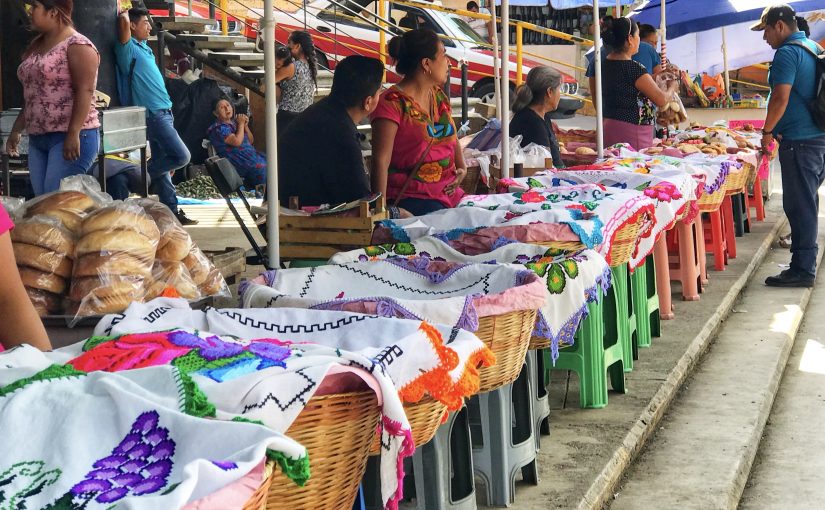Possessed nouns are made up of three elements: a prefix marker that identifies the possessor; the noun root and the singular or plural suffix markers.
Motocaxtilli tlen quipoz iteco (Possessive pronouns)
no – (substantive base) – ø /uh /hui
mo – (substantive base) – ø /uh /hui
i – (substantive base) – ø /uh /hui
to – (substantive base) – hua
inmo – (substantive base) – hua
inin – (substantive base) – hua
Tlamānēxtilli īcā tlahtolli (Example with words)
/conētl/
/pitzotl/
Tlamānēxtilli īcā cequin pāmeh (Examples with sentences)
Noconēhuan mohmōztlah yohuih caltlamachtiloyan.
Mi children go to school everyday.
María quicocōa īicxi pampa momāquilih.
The foot of Maria hurts because she hit herself.
Nopitzohuan quicuāh miac cīntli.
My pigs eat a lot of corn.
Felipe yohui mīllah huanya īchichi.
Felipe goes to the cornfield with his dog.
¿Tlen ītōcah achi tlen totlācayo? (What are the names of the parts of our body?)


Make sentences with the following words
chichi
tlalli
īxtiyōlli
mitzon
Answer the following questions
1. Quēniuhqui ītōcah tlen īcā tinehnemi?
2. Quēniuhqui ītōcah tlamantli tlen eltoc tlatlahco moihti?
3. Tlen ītōcah tlen eltoc īixco toquechcuayo?
4. Quēniuhqui ītōcah totlācayo tlen īcā ticcui cē tlamantli?
5. Tlen itōcah tlen īcā titlacuāh?

